Arun Ruz Acosta was born into a magical world of caravans, permaculture workshops and interaction with indigenous communities. He grew up in an ecovillage in rural Mexico co-founded by his own family. It was a social environment where different regenerative movements were born, focusing on promoting the development of human consciousness through art, ecology and culture, integrating science and the worldviews of indigenous people.
Para leer este artículo en Español haz click AQUÍ
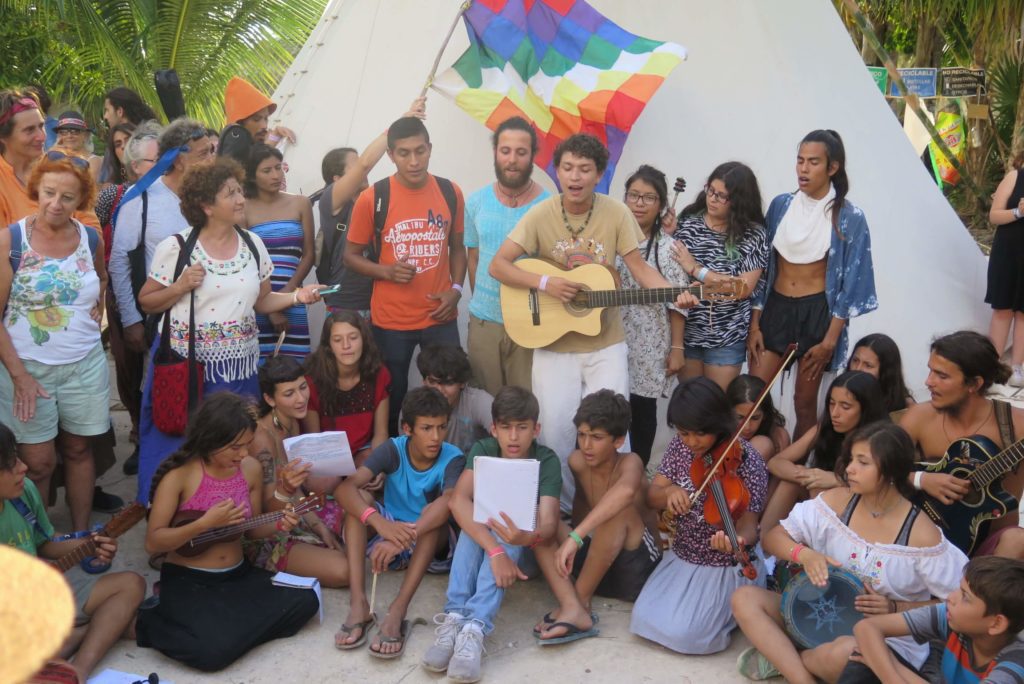
His great-grandfather, the archeologist Alberto Ruz Lhuillier, was a Mayan culture expert who discovered King Pakal’s Tomb in Palenque; his grandfather Alberto Ruz Buenfil is co-founder of the Vision Council, the ecovillage Huehuecóyotl and one of the main promoters for the Rights of Nature movement in Latin America; his father, Odin Ruz is one of the first permaculture design teachers in Mexico, and founder of many initiatives and projects on the subject. His mother, Kena Acosta, is a midwife, healer and traditional dancer.
Together with Earth Sky Woman Tami Brunk, we invited him to be part of the Restoring Sacred Culture Across the Americas Convergence and the monthlong EcoSapien Speaker Series, where we where we explored the concepts around “sacred culture,” life on the land and on the road, rebellion and systemic change, and the planet’s “near-death experience” of this present moment.
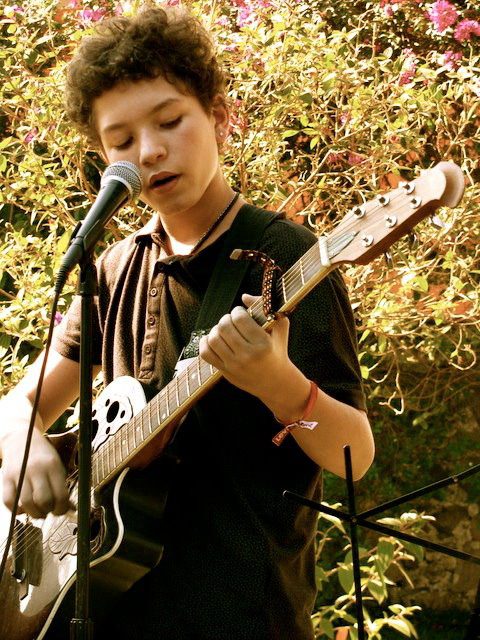
Here is our selection of some of the best parts, and you can click on the video above to watch the whole conversation, with a brief participation by his grandfather and his father.
“I feel like a relative of nature. And I think the result in my life is that I don’t feel like a foreign person, or an outsider, anywhere.”
Arun
For Arun, thinking about the origins of things and life is sacred in itself. “The moment we were born, even if we are atheists, it is a mystery that we don’t remember. It is the base of our understanding of something that’s sacred. And as time is not linear, it’s not the origin, but we always return. Also death. It doesn’t matter if you don’t like the word sacred, it feels like something sacred. The origin and destiny are something that is sacred.”
“Culture is the origin of our relationship with nature. Culture comes from cultivating. It comes from understanding the cycles of nature, the cycles of the year, the seasons, understanding that a seed makes life, understanding the basic bonds and relations of nature and how we interact with them.”
“When people recognize their origin and their destiny with respect to something sacred, their relationship with nature, with the stars, with the cosmos as something sacred, it is a sacred culture.”
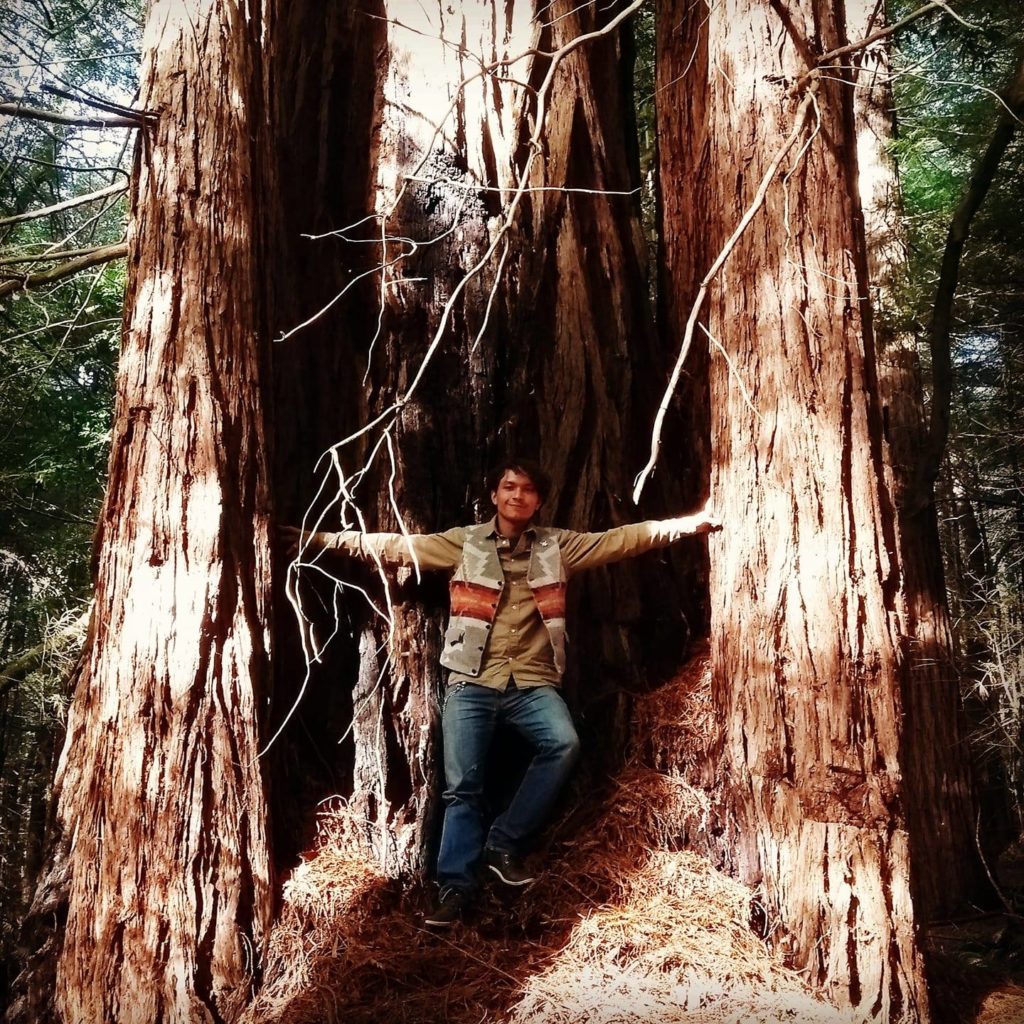
From a very young age, one of his favorite concepts has been collective consciousness, and he had a very strong vision that helped him understand it:
“I think my greatest experience in a Vision Council was when I was 15 and I literally could see a network of invisible light bonding everyone with the trees around us and with the sun and with the stars. And I was like, “Yeah. Collective consciousness exists.”
“And in this collective consciousness that we’re living, we feel this moment in time as a near-death experience of transformation. The goal is to be reborn in our own consciousness. And not to die, but to transform ourselves, to be at the service of the spirit in this planet and be at service of life on this planet. We have to restore our spiritual bond with the universe and with the planet and with life itself to give our souls in service.”
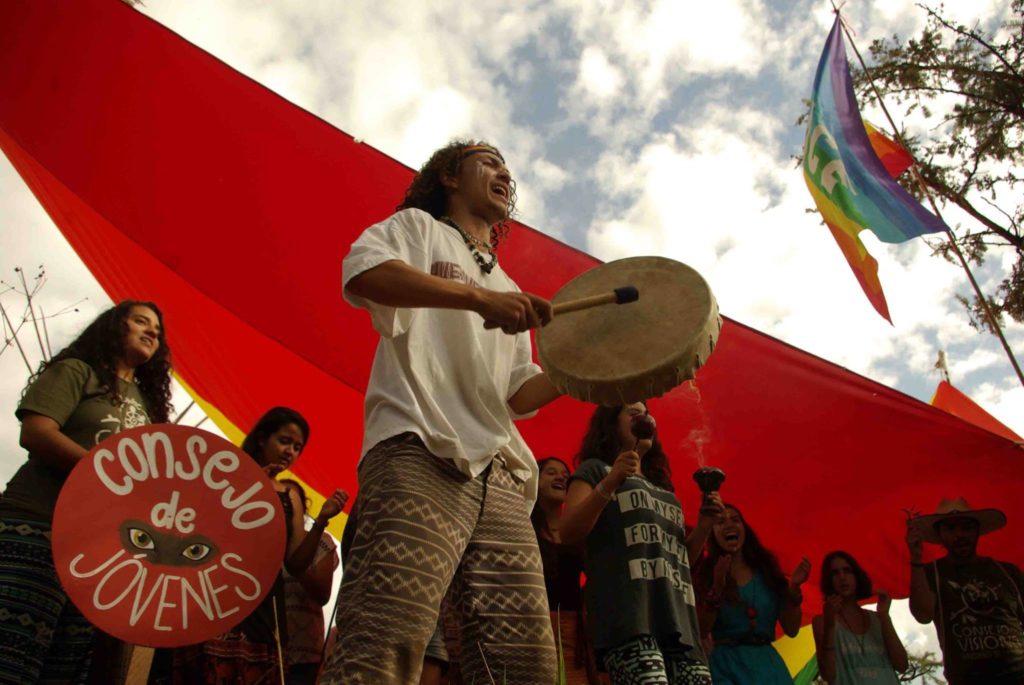
Tami: How do you see the differences in culture between people in the North and the South? And what are some gifts that we can give to each other?
Arun: Yeah, well, I don’t believe in the North and the South, because now I have Google Earth and you can see how many kilometers there are from one point to another. In a month, I’m going to travel to the Amazon and I have to go to Sao Paolo first, and then go to this place in the state of Acre. And the distance between Sao Paolo and Acre is almost the same as the distance from Acre to Mexico’s border.
So I don’t believe in the cultural differences between the North and the South so much anymore, now that I see that, for example, the Mayans were closer to the Arhuaco people of Colombia. You can go to Colombia, to the Putumayo, and speak with the elders and they’ll talk about Mayan concepts and Mayan words. And it’s present in their cultures. And at the same time, they were close to the Cree people and with the Lakota people in North America. Even with people from the Arctic region — they are so far away from central Mexico, from Teotihuacan culture; probably it was closer to be bonded with Amazonian people than with the Inuit people. But I don’t know why they all have similar words and concepts with both of them.
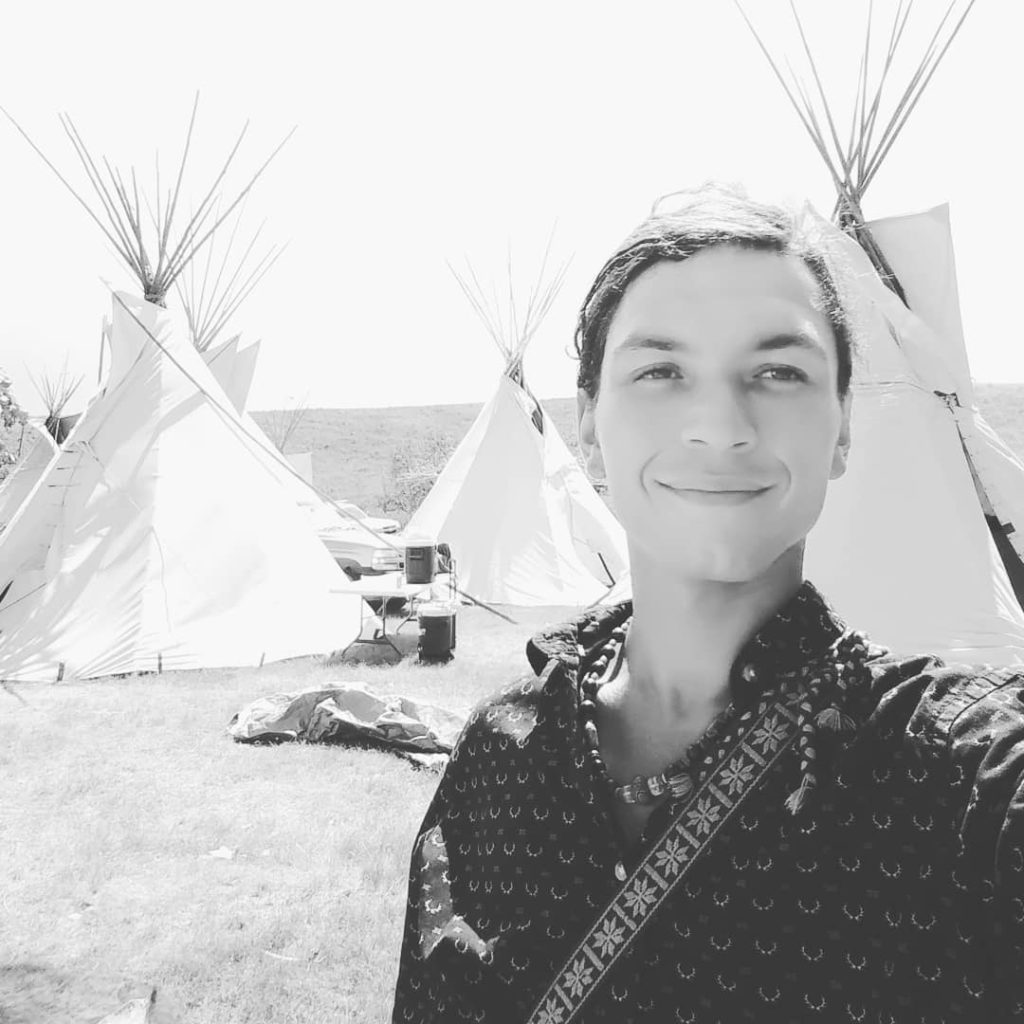
I love languages and especially indigenous languages. I have a facility for remembering words in Indigenous languages and I love to explore them. And I kind of feel like a member of the neighborhood. When I’m with Indigenous people I just feel at home, and I learn a lot. I even have some friends on WhatsApp, Indigenous people from different places, and we’re teaching each other. I teach them Spanish and they teach me their languages, and we’re always interchanging as friends. Like last week I learned that in the language of the Katukina Noke koi tribe in the Amazon, water is called “wak´á”, similar to the word for “sacred” in Lakota, or like an angel or energy from heaven in Hopi.
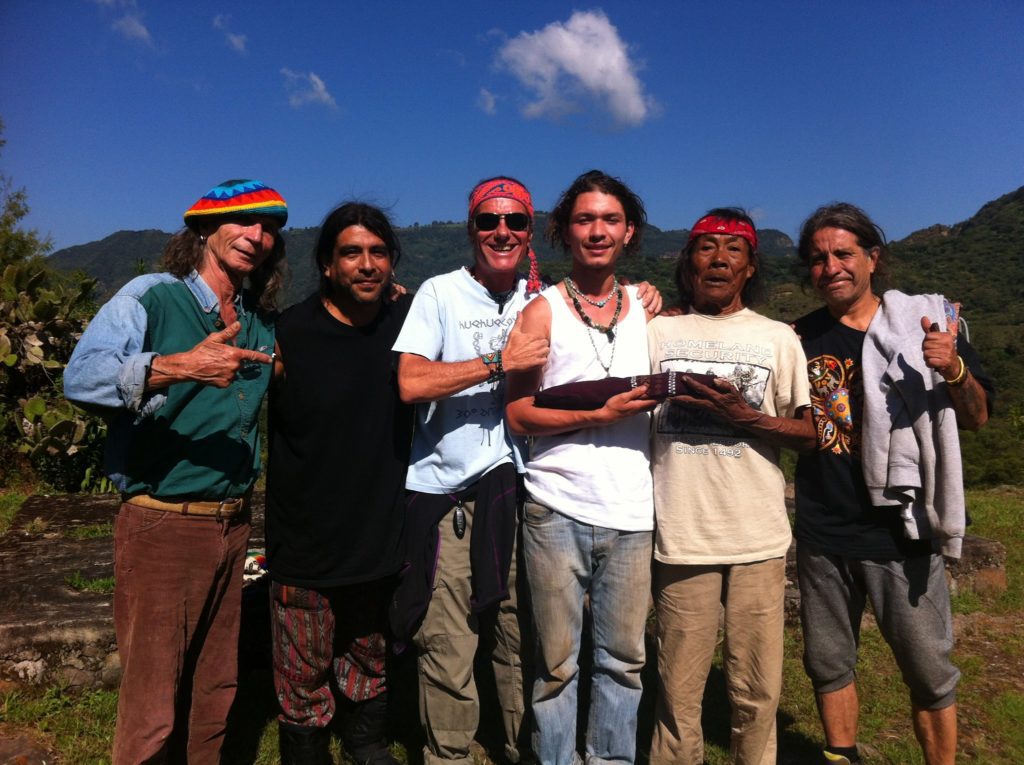
Some Indigenous people talk about consciousness as a liquid from the stars, sometimes as a penetrating cosmic water. These magical or mystical concepts that are at the center of the cosmovision, the way of understanding the Universe, in different cultures in the North and the South.
“The truth is that actually it’s nature itself, it doesn’t have borders. It’s just like a culture, or a language: it doesn’t end with an invisible line.”
Arun Ruz
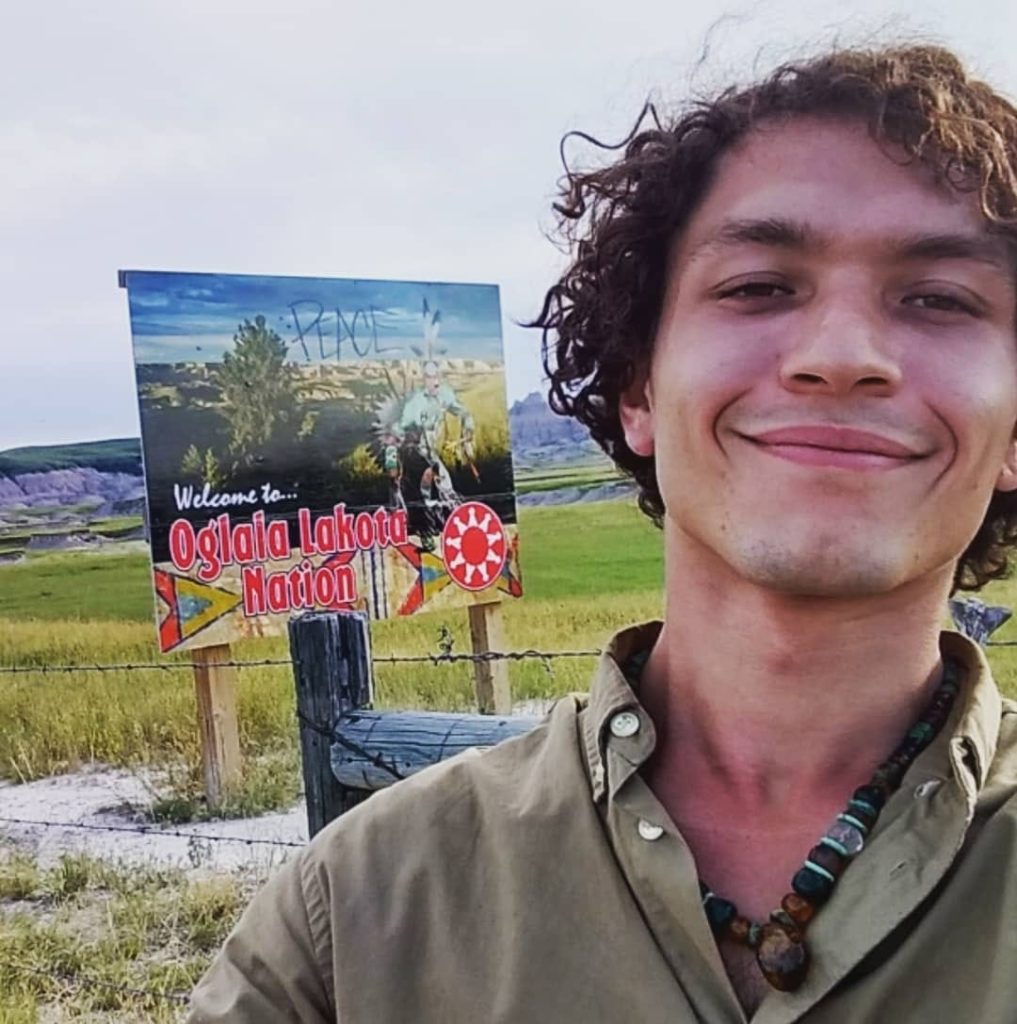
Tami: I want to circle all the way back to the very beginning because I just I love the way you described feeling rooted, that part of how you felt growing up rooted. And I just think that’s so interesting considering how much of a nomad you have been your whole life. That was the legacy you were given—but you feel rooted as a member of this Earth, the Earth community, perhaps the family of life. Can you talk a bit about being rooted in a nomadic global culture?
Arun: Yeah. I remember I was in a ceremony with my mom when I was 17 or so. And we were in the Andes and it was the first time in my life I had Wachuma and we were at the top of the end of the world. It’s like walking on the edge of a cliff. And I was just without words. And I saw the stars and and I said, as long as I’m looking at the stars, I feel home. And so the day when I see the night sky and there are no stars, I think that’s the day that I’m going to feel like, Oh, where the fuck am I?
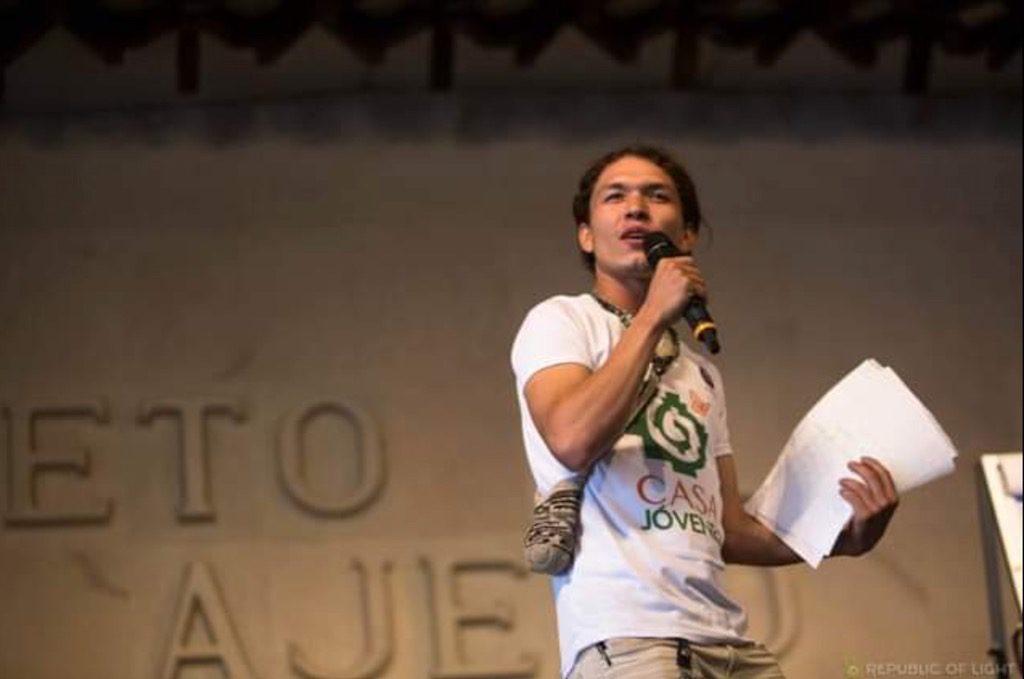
Tami: You’re speaking my language. Wow. Thank you so much for everything you’re saying. I’m going to just bring us back to right now, this moment. So where you are, where you find yourself is in Baja California, right? You’re managing a project there. Can you tell us a little bit more about what you’re doing there?
Arun: Well, this project is in a process of internal composition. So we’re not yet out there sharing it openly. But what I can say is that I met some beautiful people that are part of an amazing community here in Baja. And they really want to make a community of different communities. And they want to bring a sort of cultural renaissance to this part of Mexico. And so we are kind of community building, bringing different people from around the world who are very interesting to share their experiences and explore how we can create a beautiful place to live, basically, and to create art and experiment with ecology. And I think it’s like something that a lot of people are doing in different parts of the world.
You know, I was very, very rooted to my place, to my town, to the land, which is the place where I grew up, and the mountains where I feel most connected. I could give my life to that territory, you know? But sometimes you just feel the call that you need to go out there—and I would love the opportunity of doing this same thing that I’m doing here in my hometown. But the right people at the right moment with the right tools are not there. So I’m learning the most that I can in Baja and I hope I can learn enough so I can replicate it in the other places that I love on this planet.
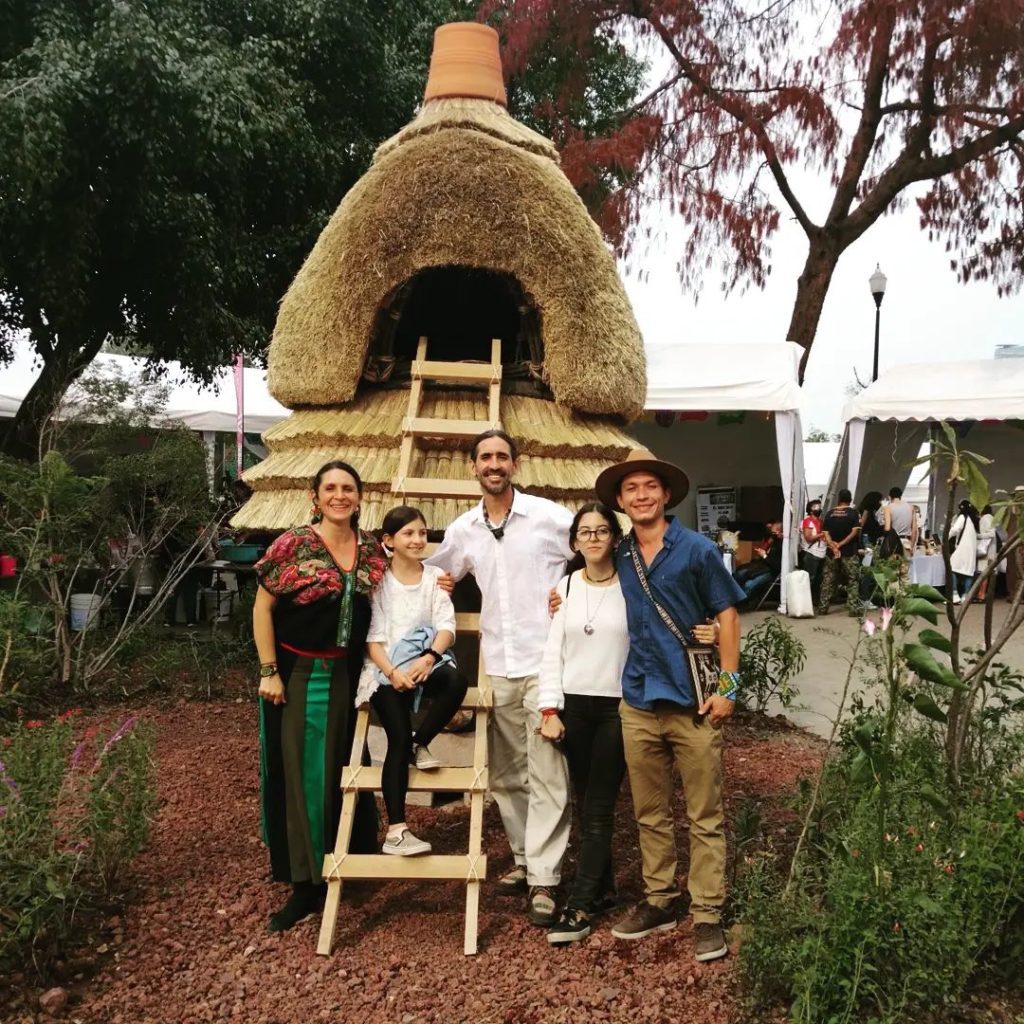
Tami: Absolutely. And I think that’s a universal thing, right? When you love the land where you come from and your beautiful community. The time we live in, though, there’s a need to plant seeds in other communities. And so you’re doing what your family has done. You’re taking that to the next level. That’s really inspiring.
So one of the questions I wanted to ask you was about the Internet, because even though you’ve been so deeply steeped in a connection to harmony with Earth and these aspects, you are also the generation that grew up with the Internet, you grew up in a very different way. How do you see the Web? How do you see screens? How do you see this culture and how it interweaves with this very earthy culture?
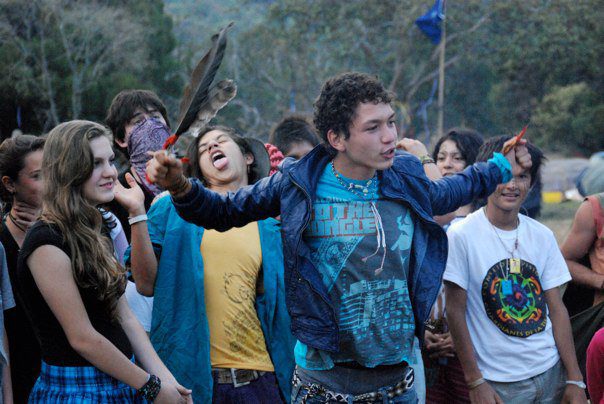
Arun: Well, I am kind of radical in the belief that there is no such thing as non-natural. You know, it’s difficult to be in this way of thinking in the environment that I am in now. In the environment where I grew up, it was pretty much against the non-natural. But that didn’t fit me. I love science and I just love the pragmatic way of thinking that everything comes from Nature, and everything that we are is Nature expressing itself. I have this belief that everything that humans have created is just an externalization of something that we already have.
We love to run, and we would love to run without getting so tired. So that’s why we invented vehicles. But we already knew how to move. And we already knew how to communicate with somebody that’s far away, with intentionality and maybe with teams. But we kind of needed some tool that was more efficient, so we invented the telephone.
We already knew that it was possible to space travel. We needed to invent these machines. So I kind of think that everything that humans have created is part of the human experience itself. As for the Internet—I don’t think that you need to read all the books to have a lot of information or knowledge. You don’t even need to have access to the Internet. Because we already knew before the Internet and before the books that there was a lot of information in the cloud. You know what I mean? The nebula, or the stars. Or looking at a seed and how it grew. And there’s so many processes at work. You just see how a mushroom is decomposing a leaf. There’s so much science there, but where is all this science stored? Where is all this knowledge stored? So we kind of needed to invent that cloud for putting all that information in the same place.
So I just don’t look at it as something synthetic, something non-natural. I think it’s just part of the journey. And they’re just externalizing the tools that we already have. That’s the way I feel it.
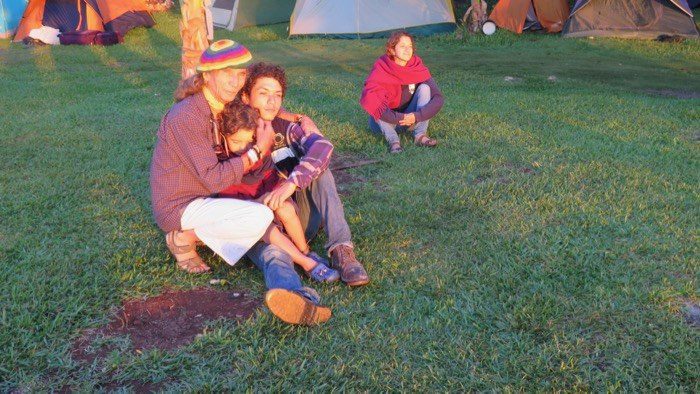
Tami: How do you understand the kind of world that I think your elders were rebelling against? They were creating something new, not just rebelling, but creating something new. Do you think the world you live in now is very different from the world they lived in?
Arun: I think that there’s no such thing as good or bad things by themselves. If somebody decides to be good or to be bad, then they become that. But they’re not good or bad. Politics and the problems in the world that exist are not static things. They are dynamic things because humans and cultures are dynamic and ways of thinking are dynamic as well. So people are not bad or good by themselves. They can decide to be bad in a certain moment. They can decide to be good at a certain moment. But everything is dynamic. So any idea that we have internalized that something is bad, is actually harming ourselves—because it’s not true, because it might be bad right now, but it might change.
And if we cross through this very strong moment that we’re living right now— which scientists say is like a near-death experience for the planet— if we manage to cross that in a positive way, we might be like children again on this planet, rediscovering everything that we have invented and using the Internet and all the tools to understand it as an externalization of our own nature.
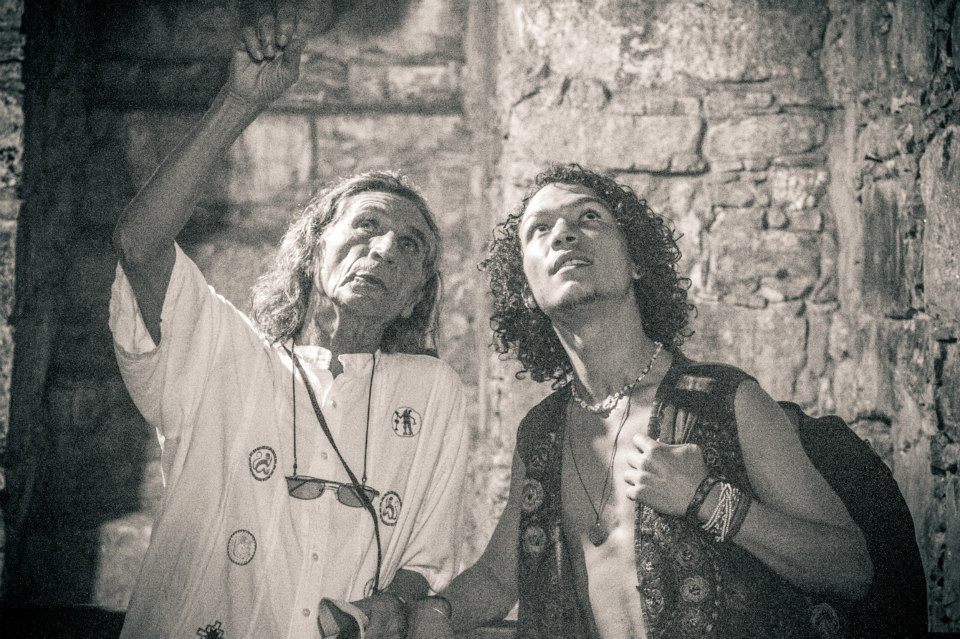
By the time Tami opened the session to questions and answers, an impressive group had gathered, including his grandfather Alberto, his father Odin, his grandmother Gerda, and his neighbor Bea Briggs, another cofounder of Huehuecoyotl who has been an international leader in the ecovillage movement.
Alberto chimed in, sharing that all the work he has done through his life with the caravans and culture-crossing has led him to believe in a world without borders, so it’s not strange to him that his grandson thinks like that.
“I don’t like borders, I don’t like nations,” Alberto said. “We should move towards a society and a humanity in which we are notseparated by borders and visas and passports. And I think there will come a time we will be a rainbow nation without borders.”
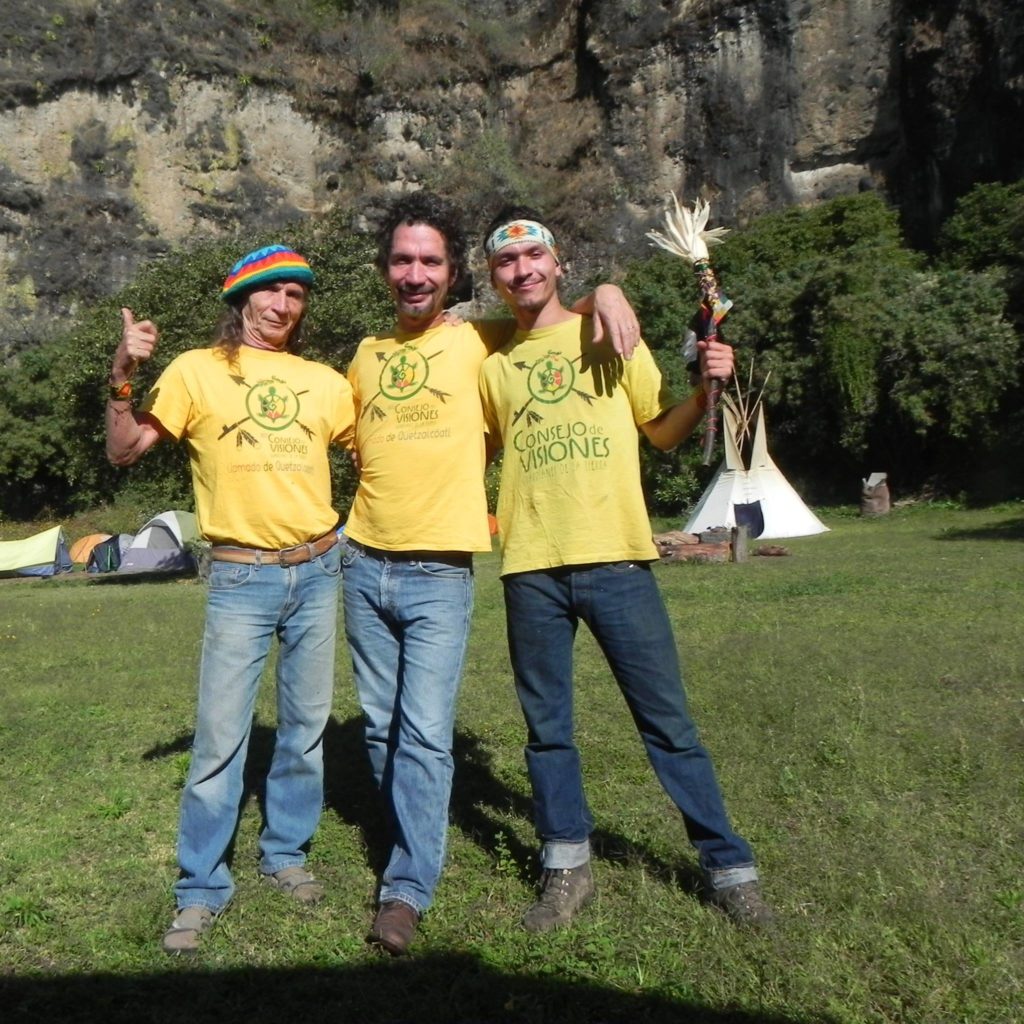
Arun’s father, Odin, spoke up as well. “I really share with you this feeling, Tami, that he has a holistic native view of the world that is deep inside his psyche and his mind. And I see that as a hope for this world and for all of us. And that’s the best legacy we can create as humans. And I guess the fact that Arun was born surrounded by sacred medicine, surrounded by Nature, surrounded by people that support the growth of consciousness and not the idea of separation— that’s what caused him to have this big, strong certainty of a Unity reality.”
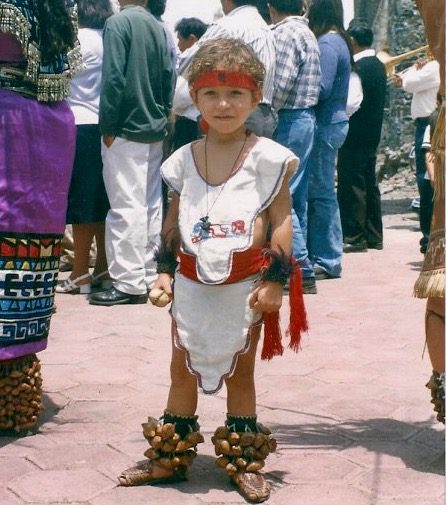
Moved by his son’s presentation, he recalled the moment when, as a young student in India, the young life that would be Arun announced its arrival.
“You know, I wasn’t planning to have Arun so young. But when he arrived he really told me, ‘I’m on my way, Dad, you just be ready.’ And from the very moment he announced himself, we embraced him with all our heart. And it’s a recommendation, I guess, if you have kids when you’re young, then they can become companions of life. And then you can actually share your values, and then they can support you in their own interpretation of those same values later on in life. And that’s one of the greatest gifts.”
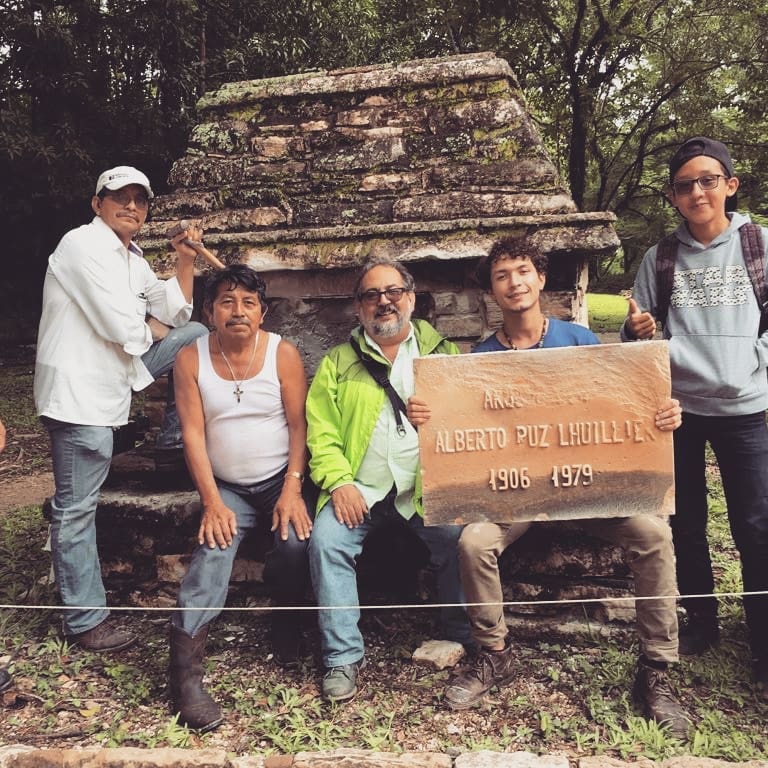
Arun concluded with a reflection on the passing of the torch—or the baton, as it’s said in Spanish—through the generations.
“I think this core idea of this generation was, you know, changing the reality that we’re living as humanity for the good, and for learning how to do that. Their idea was to get as far out of the system as possible.”
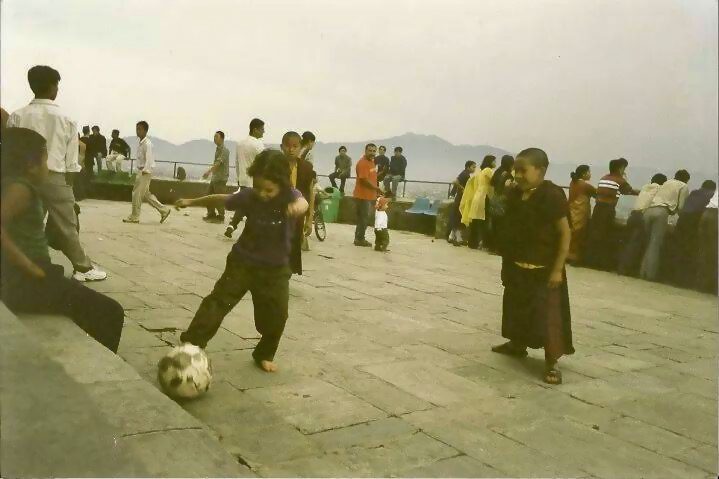
“And now what I feel is my task, and the task of many of my friends, is to get the most that we can learn from these experiences of getting out of the system and return those back into the different stratas of the system and get into like the center of the heart of the system that we are all part of, into the central nervous system, you know, to enlighten the pineal gland of the system. You know, it’s like going just as deep as we can. Because for me, the system is not bad, it’s just knowing how it works. So we’re on this journey of learning things and we’re learning the same things. It’s just a process, a natural process of integration of our experience of learning.”
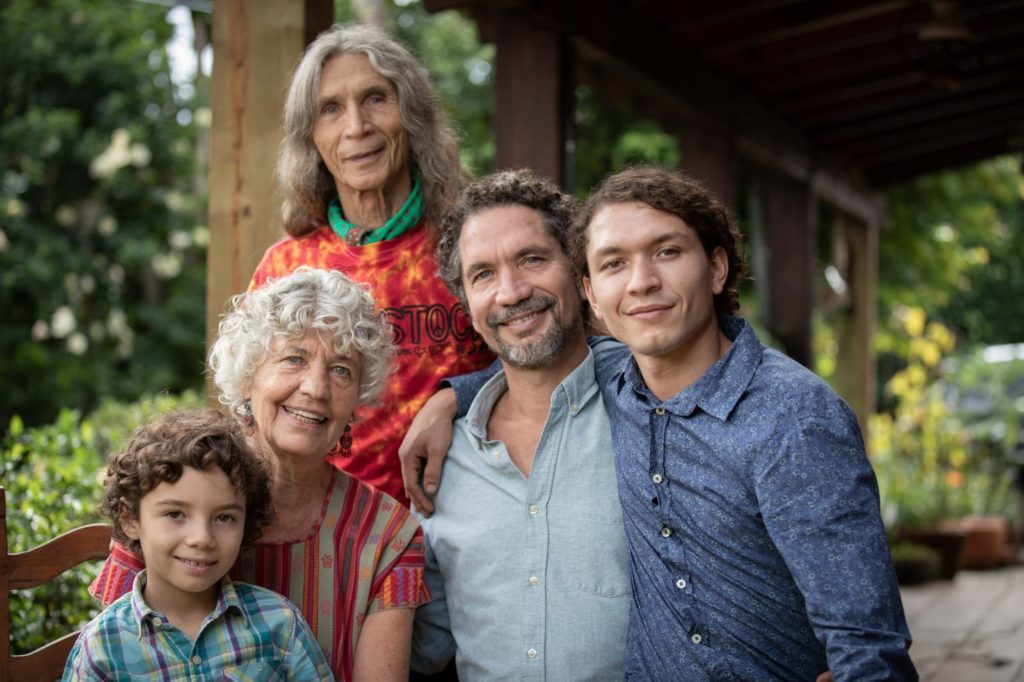
To listen to the other interviews in the EcoSapiens Series click HERE.
Arun Ruz Restoring Sacred Culture Convergence Unity Consciousness
Beautiful, rich, inspiring story!!! Love it!